The best BBQ Delivery Boxes in the UK from small sustainable British Farms
What’s the difference between Cafédirect and Nespresso? It’s the question many people asked following Nespresso achieving B-Corp status last Spring, granting them the holy status of “using business as a force for good”.
Nestlé-owned Nespresso are shiny and they are fronted by Geoge Clooney. But… a force for good? They created a whole new waste stream by marketing pods and are, arguably, making huge profits off the backs of coffee farmers who are earning nowhere near as much.
Cafédirect, however, is the UK’s first and largest Fairtrade hot drinks brand, sells 60% organic coffee and invests 50% of its profits into its charity ‘Producers Direct’. It has coffee farmers on its board.
So, there’s a world of difference between how the two coffee companies operate. This begs the question, what does good business look like?
In their new podcast series ‘Building Better Business’, Cafédirect CEO, John Steel, brings both purpose-driven organisations, such as Riverford Organic, Solidaridad, Oxfam, and big profit-driven companies including Unilever, Nestlé and Tesco, together to explore the role of business in today’s world.
We sat down with him to ask can profit-driven business really ever be a force for good? If so, what does that entail?
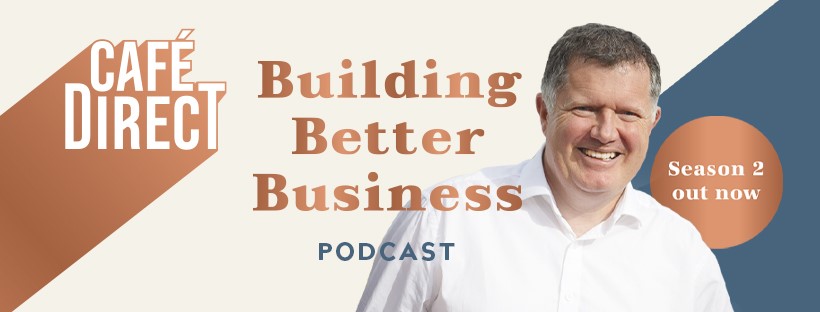
Live Frankly:
On this podcast series, you have interviewed people from all types of business – from purpose-driven organisations to big profit-driven companies who are still playing catch up in this area. What were your key takeaways?
John Steel:
One of the biggest things that struck me was the people working in organisations like Unilever and Nestlé, and Tesco. They are brilliant and engaging and I can see they do want to make a difference. But, ultimately, they’re operating within a structure that prioritises profits for their shareholders and fundamentally doesn’t deliver environmentally or socially. So it was interesting and, at times, uncomfortable. I felt that if we could get together in a pub they’d have great insights to share.
Do you think we need more dialogue with big business? Or, perhaps, do we need to hold them more to account than we currently do?
When I first joined Cafédirect over a decade ago, the rhetoric was ‘small business is good and big business is the devil’. The problem with this is that if we only change a tiny percentage of the market we ultimately fail and we all will have to deal with the consequences.
So, we need to engage big business. But, we can’t go year-in-year-out having these conversations and not making the changes we need. It’ll drive us all nuts.
The problem isn’t the people, it’s the structures and ownership. Adding sustainability on top of a profit-driven business isn’t working. You can see how larger corporations with better resources are greenwashing the world to an inadequate response.
We need real transformation in terms of ownership and governance. With the current system, and the current set of incentives, change is going to be wholly inadequate.
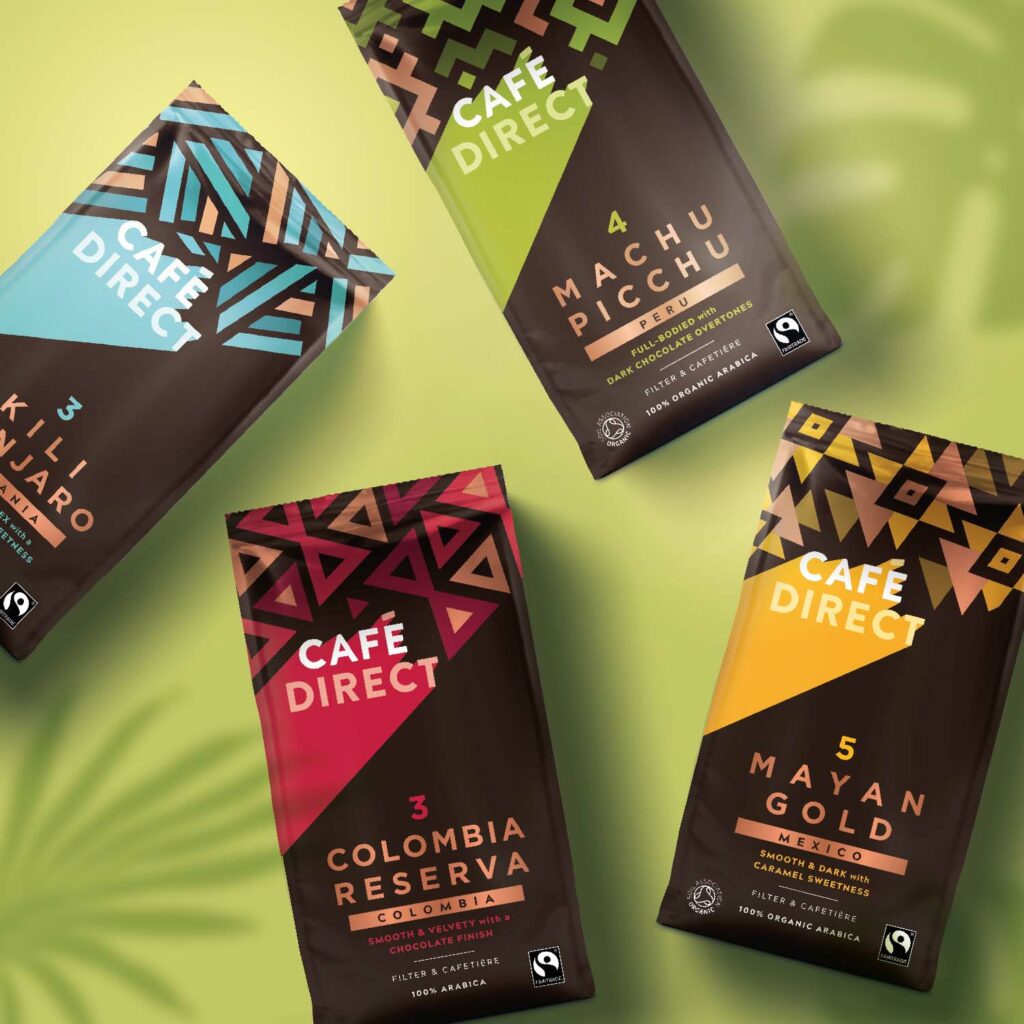
How much do you think we need the consumer at the table? How much does consumer influence really drive change?
The world still looks at success as being about money. It helps if Cafédirect is successful, it helps us to have a more influential seat at the table and contribute to the change conversation.
So, every purchase strengthens a purpose-driven brand. But, I think it’s unfair to put the weight of the issues on the shoulders of the consumer.
It’s more about helping people to feel powerful in the decisions they make. If you buy a coffee or a chocolate bar and know the pound you’ve spent makes a difference, then that’s a wonderful thing.
When faced with sustainability claims from both a purpose-driven brand and a profit-driven brand, let’s say Cafédirect and Nespresso, how does a consumer determine which one is more in line with their values?
Currently, it’s really difficult, isn’t it? Nespresso has George Clooney, very polished advertising, and B-Corp status. How do we compete with that marketing budget?
If you’re looking to buy ethically, there’s no doubt you should be buying the coffee from the brand that has coffee farmers on its board; that works day and night to improve the lives of the people in its supply chain; and that reinvests 50% of its profits to do so. There’s no two ways about it.
The challenge is how do you get that message across without being too preachy?
When Nespresso was certified B-Corp it caused a lot of upset…
Yes, a lot of people wanted us to respond publicly. Privately, a lot of us wanted to say something, too. There’s a huge difference in the scores but you can’t expect people not working in the industry to understand that – they only see the certification.
What I will say is this: It clearly helps B-Corp to onboard larger organisations to help drive the momentum of movement and to finance it. But, B-Corp needs to be continually raising its standards and holding certified brands to account out. If not, they’ll get into the same situation as other well-meaning changemakers, which is they become little more than a tick-box without making real impact.
The challenge of how to engage without being taken advantage of is a real one.
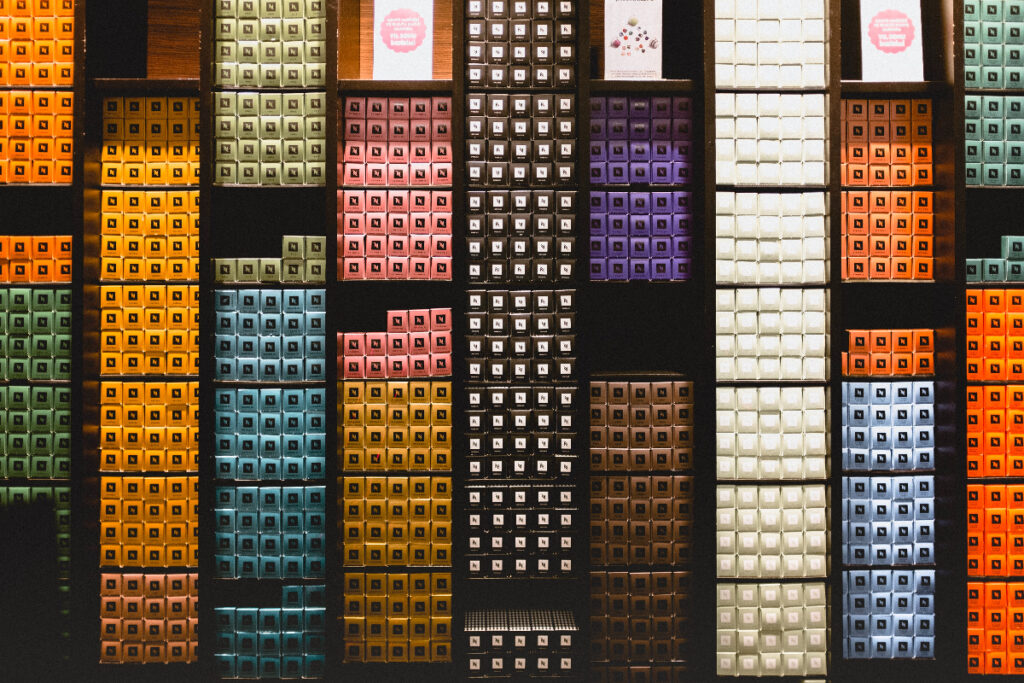
What was the purpose of the podcast?
In its early days Cafédirect was quite provocative. It had a strong voice. We want to be heard as an organisation that is trying to drive change.
It was quite exciting to bring in some large organisations along with agent provocateurs, like Erinch [Sahan, DEAL] and Guy [Singh-Watson, Riverford]. Have you listened to the What’s Farming Got To Do With Climate Change episode yet? I thought Sam [Fulton from frozen food company Nomad Food] was fantastic. But, Guy was just having none of it, was he?
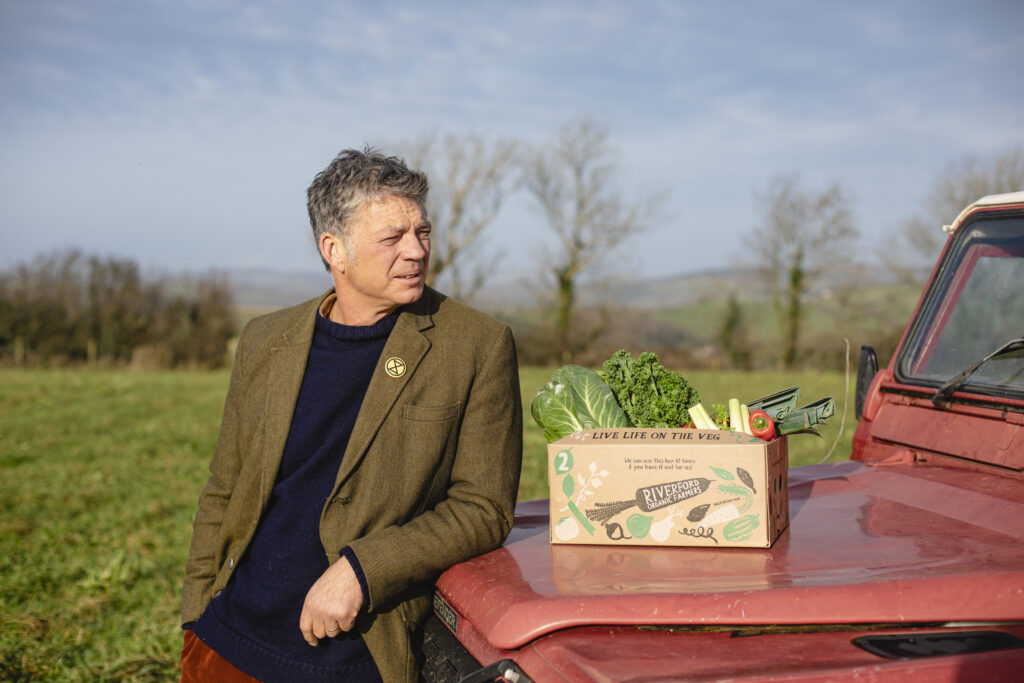
If we can keep doing the podcast and keep evolving it, we could get quite a lot of engagement about what really matters in business. That’s going to be a very positive thing.
What is your favourite episode?
‘Responsible business: the role of law and government’. It was with the deputy leader of the Green Party Zack Polanski, Good Law Project’s Sahil Kher, Chancery Lane Project’s Becky Annison and the Better Business Act’s Mhairi Littlewood. It was fascinating.

It took us beyond the role of business. It made me feel excited about the shift we could make if we could get together the right kind of businesses with the appropriate politicians (there probably are some of them around!) along with people who understand regulation.
My favourite episode was ‘Why coffee is at risk of extinction’ with Erinch and Jane Aldridge from Nestlé. Erinch essentially asks how we reach for transformative change without undermining the efforts of people doing what they can – under the constraints of the current business structures we’re all working within.
I feel the whole series was aimed at exploring this question. Have you got closer to any answers to that?
That’s exactly it. I think the answers are there. Back to my point about the ‘Responsible business: the role of law and government’ episode, we definitely need to bring in actors outside of business. I think Erinch and a company like DEAL would be a great facilitator of a pre-competitive approach that is based on the Doughnut Economics model.
Working on this series also helped to crystallise a thought I have been forming for a while – and that is we need to be more selective with the big businesses we try to engage. A big company that is beholden to shareholders is going to require a phenomenal shift. Despite their market leadership positions, with the best will in the world, the Nestlés and the Unilevers are always going to be followers in terms of transformational change because of their corporate structure.
But, a large privately-owned company might be more able and willing to change the ownership and governance structure that will lead to authentic change.
Erinch very directly asked Jane: “What are we celebrating? We pat ourselves on the back, they’re (coffee farmers) still poor, they are growing the product we sell, they are stuck in poverty. And every year, the giants of the industry declare a big dividend, and have grown that dividend. That just feels like a juxtaposition, that feels like a moral contradiction.”
This is a fundamental question of ‘sustainable business’. Can a profit-driven company be sustainable?
Clearly not. If a business exists to maximise profit, it is not going to maximise the growth of environmental and social capital. Some of the very well regarded commentators in the industry have said that focusing on sustainability is a good business decision in terms of profitability, but I think that’s incredibly dangerous. It’s keeping us within the same set of rules in terms of everybody believing they can have their cake and eat it.
Quite simply, you have to balance capital with other considerations. When we make decisions we consider the impact on smallholder farmers and the environment as well as money. That way of thinking must be better, mustn’t it?
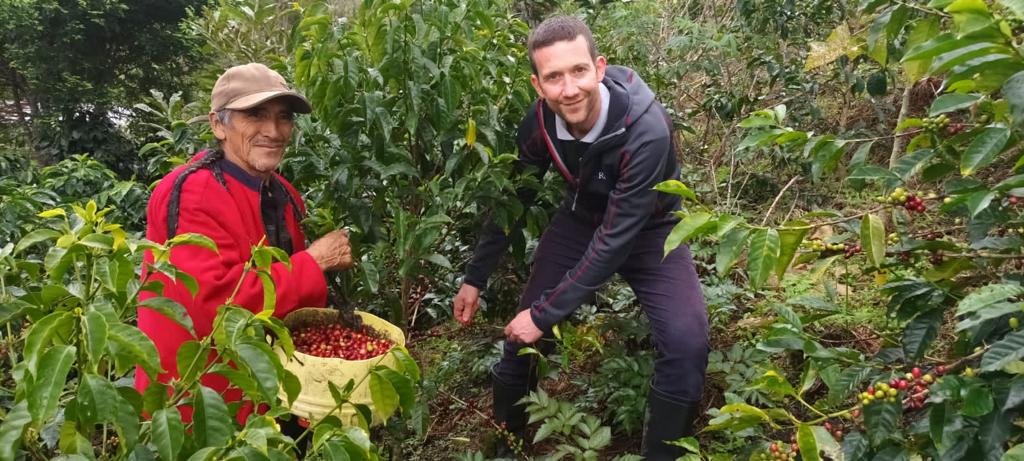
Giving big, profit-driven companies a platform such as this podcast is a risk when it comes to greenwashing. Was that a concern for you?
It was. Personally because my style is positive and relatively accommodating there’s a danger that I won’t be seen as being tough enough on big business. But, that meant I could hold the space to bring people with different outlooks together to have these important conversations.
In your view, are businesses doing enough to protect our future and what more can be done?
No, they’re not. Within the current structures of most businesses no changes are going to be great enough. That’s the danger, isn’t it? If you’re a large corporation and you plant some trees and spend £100,000 marketing it to people, so that they think that you’re good company, that’s not going to make a big enough of a difference.
Companies trying to do more is fine. But, we need to step back and change the way businesses are run. I guest lecture, and students always ask me: ‘Don’t you long for the time when social enterprise isn’t the exception to the rule?’
It’s just crazy, isn’t it? You’ve got these businesses that exist to create a fairer world and to combat climate change but the system is set up to reward businesses that simply make lots of money for very few privileged people, mainly in developed countries.
We need to improve incentives to change company behaviour. We employ 28 people and turn over £18 million. We spend most of that on supporting our farmer-led charity, Producers Direct, on Fairtrade Premiums and organic certifications, as well as trying to connect with the right organisations to bring about systemic change to the industry. Yet, other companies can just ignore all of that and be highly profitable.
I don’t think I have all the answers. But, I’m determined to bring together a group of people, including Erinch who I think will be an ideal catalyst for change, to tackle this in coffee. It has enough fairly independently-owned players who can choose to change, if they want to. Coffee brands have such a clear line of sight to the farmer, the motivation must be there.
If you succeed in your goal, what’s the key message you hope listeners take away from this series?
I hope listeners enjoy what they’ve heard, and I also hope it will make them pause and make a positive difference each day. I believe the pandemic has helped people to think more about the values they choose to hold and the way they live their lives. I would love listeners to choose better products or tell a friend ‘actually, maybe you shouldn’t buy that because I heard…’ you know, get under the skin of things a bit. We all have a limited amount of time on the planet and we can make every day more meaningful and make a difference.
…And if you fail?
We’ll do series three. We’ll learn some really good lessons and keep moving forward.
Season 2 of the Building Better Business podcast is available on all major streaming platforms, including Apple podcasts and Spotify, and at https://www.cafedirect.co.uk/podcast/, from 18 January 2022.


